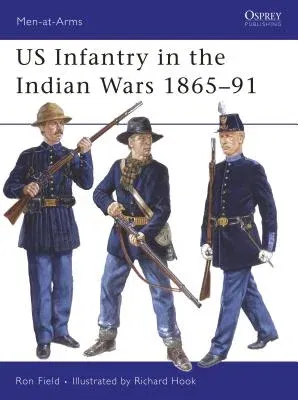Thanks to Hollywood's many portrayals of the US Cavalry, it is little
understood that the infantry played as great a part in the Indian Wars
of the 1860s-80s, and were more consistently successful.
The great Paiute War of 1866, where the infantry of the most renowned
Indian-fighting general, George Cook, excelled in battle, together with
the role of other infantry units in the final subjugation of Geronimo's
Apaches in 1886, are but two instances of their achievements.
Moreover, after the Custer massacre, it was the infantry under Gen
Nelson Miles who out-fought Crazy Horse's Sioux in the Wolf Mountains in
1877; Crazy Horse christened them 'Walk-a-Heaps'.
The struggle against the Indians was the longest war in American
military history and the Indians were formidable opponents. They knew
the terrain, could live off the land and fielded some of the finest
light cavalry in the world. Facing such a determined foe, one soldier
even wrote: "The front is all around and the rear is nowhere." The US
Infantry endured years of sporadic battles that were bitterly contested
against an enemy who was fighting for their very survival.
Presenting an illustrated history of these critical but overlooked
soldiers of the Indian Wars, and featuring their involvement in the
legendary battles of Wounded Knee and Wolf Mountains, this narrative
includes details of their tactics, training, uniforms and equipment
culminating in the eventual "closing" of the American Frontier in 1890
and the final conquest of the indigenous inhabitants of North America.

